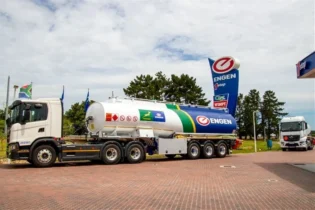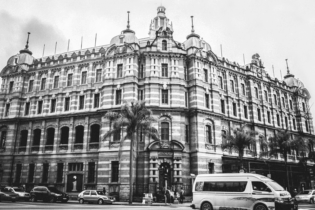Drivers and transport companies pay bribes totalling Sh570,775 every month to speed up passage of their goods through customs and road checks, according to a survey by Transparency International.
The bribes paid to revenue, police, immigration, ports and weighbridge officials make up an informal taxation equivalent to 1.4 per cent of the average value of goods (Sh41 million) handled monthly by the 69 transport firms from Kenya who took part in the survey.
That bill is eventually footed by consumers through higher prices of goods.
“Failure to pay bribes can lead to dire consequences: from delays in getting services, disruption of clients’ operations to high administrative taxes,” Samuel Kimeu, the executive director of TI Kenya, said in Nairobi on Monday while releasing the survey.
Out of the amount paid in bribes, KRA officials take 49.8 per cent (Sh284,410) followed by police officers at road blocks who take Sh150,535 and weighbridge officials who pocket Sh135,745.
Clearing and forwarding agents surveyed said they pay Sh422,620 ($4,972) in bribes every year to regulatory officials.
“The survey has identified bribery as a major non-tariff barrier (NTB) which causes delay, adds unnecessary cost on businesses and distorts the market forces,” Mr Kimeu said.
“The survey has identified bribery as a major non-tariff barrier (NTB) which causes delay, adds unnecessary cost on businesses and distorts the market forces,” Mr Kimeu said.
The survey shows that while revenue officials ask for large sums of money, consequences for not bribing are more severe at weighbridges and police roadblocks. Forty six per cent of the transporters sampled said the likelihood of delays was the major reason for paying bribes.
Outside the national borders, Tanzania and Uganda — the two top destinations for Kenya’s exports and investment capital — were also cited in the report for the large sizes of bribes that public officials there demand.
On average, transport companies and drivers paid Tanzanian regulators a total of Sh1 million ($12,641) each while clearing and forwarding agents each paid Sh27,000 last year to facilitate movement of goods through the country. Kenya exported goods worth Sh41.8 billion to Tanzania in 2011.
The survey showed Ugandan drivers and transport firms each paid a total of Sh312, 120 to regulatory authorities while clearing agents paid Sh1.3 million each as bribes to regulatory authorities.
Uganda is Kenya’s single largest destination for exports in the world, absorbing goods worth Sh75.9 billion last year.
For clearing agents, the bribes help to speed up document processing, have tax codes changed and to avoid inspection and investigation that could prove their guilt. Transporters on the other hand use bribes to speed up clearance at transit points and avoid weight verification.
The survey found many respondents ranging from 99 per cent in Uganda to 83 per cent in Rwanda do not report bribery incidents.
In Kenya, 89 per cent of respondents did not report the incidents compared to 92 per cent in Tanzania and 87 per cent in Burundi.
“The major problem is that many East Africans tend to ignore the harmful impacts of bribery and accept it as a cultural issue,” said Peter Wandera, TI Uganda’s executive director.
More than half (52 per cent) of EAC transporters viewed bribery as a normal and acceptable practice while 28 per cent thought no action would be taken against perpetrators, the survey shows.
Kenya government officials said non-tarrif barriers such as bribery had defied recent efforts at their eradication.
The government recently reduced the number of official police road blocks and set up non-tarrif barriers monitoring committees and integration centres at border points.
“We still stand accused as a country because these efforts are not working,” said Richard Sindiga, the director of economic affairs at the EAC Ministry.
The TI report recommends harmonisation of regulatory procedures and roles of agencies involved in cross-border clearance.
The TI report recommends harmonisation of regulatory procedures and roles of agencies involved in cross-border clearance.
It also called for punitive action on corruption and use of information technology to reduce the number of interfaces with public officials to reduce bribery.
“In the eye of investors who can bring capital, skills and jobs, non-tariff barriers constitute a reputational risk that has now reached a crisis level.
It must be addressed urgently,” said David Stanton, Trade Mark East Africa’s (TMEA) deputy CEO of country programmes.
The single window system, which TMEA has been working on in partnership with governments in East Africa, aims to allow traders to fill import and exports documents, reducing physical interactions with public officials, Mr Stanton said.
Source: http://www.businessdailyafrica.com/






